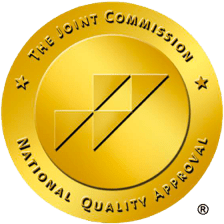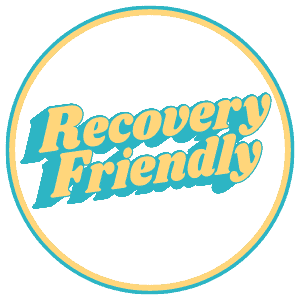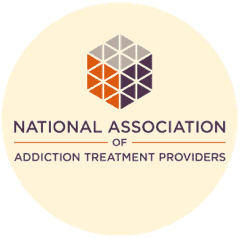Did you know that men are twice as likely to develop alcoholism compared to women? In fact, according to the Centers For Disease Control and Prevention (CDC), almost 58% of adult men report drinking alcohol in the past 30 days compared to 49% of women. Men are also more likely to binge drink.
While the exact reasons why men drink will vary from person to person, there are some common trends and things we now know about a few of those reasons.
Alcohol Abuse: Common Reasons Why Men Drink More Than Women
Different Genetic Makeup
We’ve learned a lot about the genetic and scientific makeup of men and women over the years and how there are some key genetic differences between the way our bodies process alcohol. According to Harvard Medical School, men metabolize alcohol more quickly than women. Men actually have a larger amount of dehydrogenase in their bodies, which allows them to quickly break down any alcohol they consume (which in turn, can lead to drinking more).
Dopamine levels could also be a factor. A study published in Biological Psychiatry indicated that men experienced greater levels of dopamine release when consuming alcohol compared to women. The dopamine increase was also found in the part of the brain that is associated with pleasure, reinforcement, and addiction. It’s possible this causes men to create more habit-forming behaviors around alcohol consumption.
Aside from dopamine, men tend to have greater amounts of water in their bodies, approximately 52%, which could contribute to diluting alcohol more quickly.
Peer Pressure & Binge Drinking
Men might feel pressured to drink in social settings. Whether it’s from friends, coworkers, or just society in general, drinking is still a strong part of male culture in the country. This could make it difficult for men to find other male friends who do not drink. It could also cause them to feel like they need to incorporate drinking into more of their life than they want for themselves.
Mental Health & Alcohol Consumption
Sometimes men drink because they are struggling with anxiety, depression, or a similar mental health disorder but they don’t know how to share what they feel. For these men, drinking might become something that helps calm them. But the cycle of drinking to address other feelings and issues in life is dangerous and ineffective and ultimately, it only makes things worse. Additionally, drinking alcohol (including when paired with mental health struggles) can potentially increase the risk of sexual violence/sexual assault.
Long-Term Health Effects
Abusing alcohol, especially over the long-term, can put men at higher risk for the following health issues:
- Stroke
- Brain damage
- Cancer
- Heart disease
- Liver disease
- Testicular shrinking
- Hair loss
- Stomach ulcers
- Malnutrition
- Among many other health issues
Does Alcohol Affect Women Differently Than Men?
Yes. While the reasons women drink might be different than men, there are also differences in how alcohol affects women compared to men. According to the CDC, men might be more likely to consume larger amounts of alcohol, but adult women take longer to metabolize it. This is due to the differences in both chemistry and body structure. In fact, after alcohol use/alcoholic drinks, women tend to have higher blood alcohol levels than men. The long-term risk factors for alcoholic women and significant alcohol intake over time make women more susceptible to negative health effects (including heart disease and breast cancer).
Addiction Treatment For Men
Addiction treatment is available for men to help them live a life that is alcohol-free. At Next Step Recovery, we offer a variety of treatment options that are individualized based on the needs of each client.
Intensive Outpatient Program (IOP)
An Intensive Outpatient Program, also known as IOP, is a 12-week program that meets three days each week. During each IOP, clients participate in intensive group therapy, individual counseling, and a 12-step immersion education to support long-term recovery.
Sober Living
Once clients complete their IOP, they can continue to receive the support they need through our Sober Living program. This transitional support includes case management services, 12-step support, relapse prevention education, mindfulness meditation, and adventure therapy.
Dual Diagnosis
Dual Diagnosis provides treatment for co-occurring disorders such as anxiety, depression, bipolar disorders, and many other mental health disorders. Our mental health services administration at Next Step Recovery provides clients with the tools needed to work through and overcome not only addiction but also any mental health conditions.
Medication Assisted Treatment
Medication Assisted Treatment is can be used during the initial detox process. This makes the withdrawal process more comfortable so that our clients can feel relaxed and focused on their journey to recovery.
Wilderness Adventure Therapy
It’s important for men to find activities that bring them joy and do not involve drinking or drug use. A concern patients have when they get sober is whether or not they will be able to have a good time without drinking or the use of substances.
That’s why at Next Step Recovery we offer a wide variety of Wilderness Adventure Therapy activities that help men connect outside and have fun. Our activities include hiking, watersports, high rope courses, paintball, and more. Each of these activities shows them they can live a fun, happy laugh while being sober.
Why Choose Next Step Recovery For Alcohol and Substance Abuse Treatment
At Next Step Recovery, we offer peer support for men who can rise to reclaim their futures in the healing setting of Asheville, NC. Our experienced team provides a wide variety of evidence-based therapies for participants to practice emotional skills that prepare them for life’s challenges, while also allowing them to receive support and encouragement from others on the same path.









